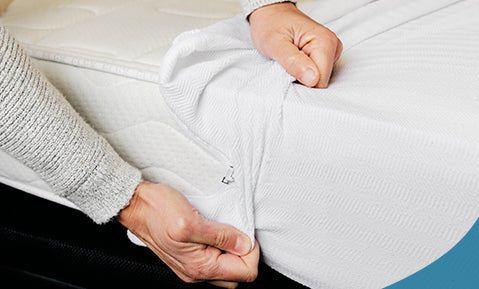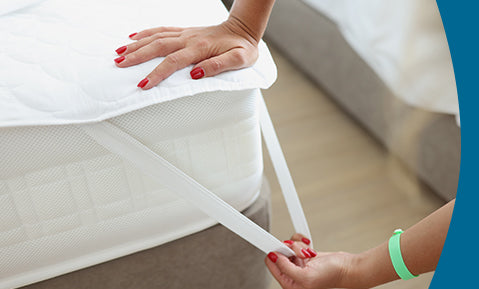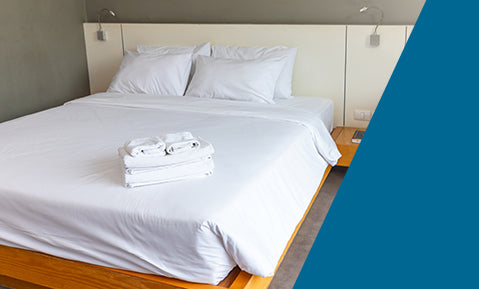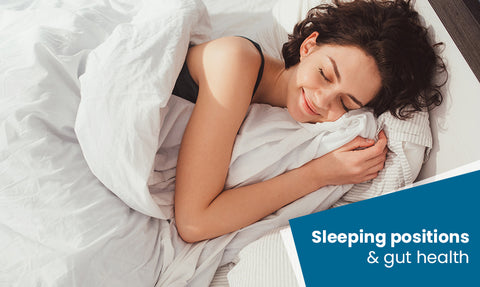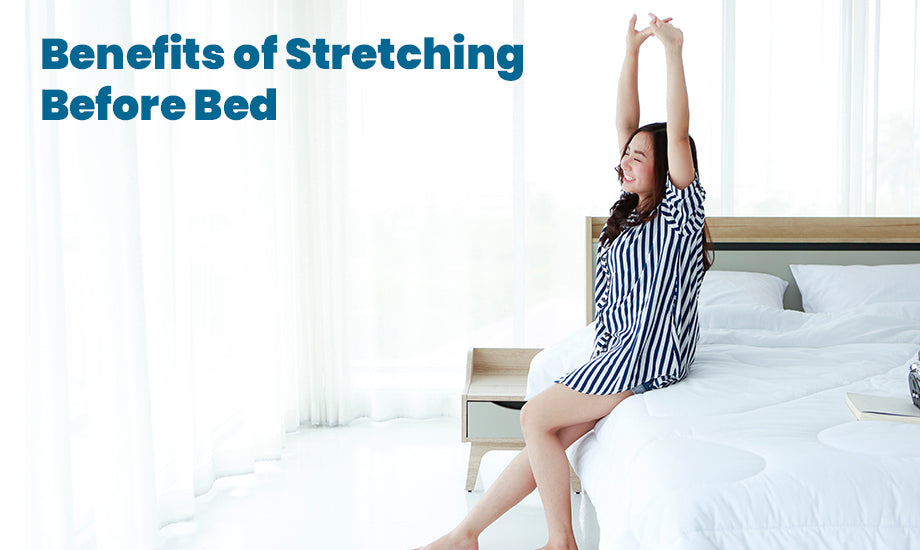
Stretching before bed is a great natural way to improve sleep quality and duration. Keep reading to learn more about the stretches you can try before bed. We will also speak about some vital safety considerations.
One review of multiple studies claims that mindfulness meditation practices that involve gentle stretchings, such as yoga and Tai Chi, improve sleep quality. A study into resistance exercise found that exercises could improve the symptoms of insomnia. In the study, participants found that stretching in 60-minute sessions three times in seven days can improve sleep quality when stretching in the evening.
Another review claims that adults reported improved sleep quality after performing low-level physical and cognitive activity. The researchers found that gentle stretching improved sleep quality when the participants performed strenuous activities such as aerobics.
Postmenopausal women with overweight symptoms found that stretching may improve sleep quality.
Further research into the benefits of stretching before bed is vital. Nevertheless, many studies linked gentle exercise and stitching with an improvement in sleep quality.
In general, stretching can help you with the following.
- It will help you reduce body pain.
- It will help you reduce stress and improve your mood.
- It will increase flexibility and mobility.
- It will reduce the risk of injury.
- It will improve circulation.
Some stretch that you can try before going to bed
The following stretches may provide benefits when a person performs them before bed.
People should only stretch as much as comfortable and stop if any stretches cause discomfort or pain.
- Lie on one side of the floor and use a mattress.
- Bend both of your knees slightly deeper than 90 degrees at the hips.
- Align the shoulders and the hips, and keep the head and spine in a straight line.
- Extend the lower arm in front of the body and rest it on the floor or mattress while reaching with the upper arm down to grasp the Rib cage.
- Engage the abdominal muscles to stabilize the spine. Hold your shoulders back and down without moving the torso.
- Exhale and rotate the torso using the upper arm. Avoid rotating the hips as it causes the upper thigh to slide backward while twisting.
- Be in this position for about 15 to 30 seconds. Release and relax what about 30 seconds.
People should feel the stretch in the chest, abs, full back, and Shoulders.
Kneeling back extension with child's pose

- Start on the knees and hands. Move with the shoulders over the hands.
- Gently rock forward the arm, rounding the Shoulders and developing the lower back to drop toward the floor.
- Hold for about 5 seconds.
- Gently rock backward and sit with the buttocks as Close To The heels as possible.
- Extend the arms and look down to the floor to keep your neck aligned with the spine.
- Hold for five seconds in this position.
People should feel the stretch in the lower back and abdominal muscles
Bear hug
- You need to stand up with your feet hip-width apart and open your arms wide.
- Cross one arm over the other at the elbows, reaching opposite shoulders and grasping the back of the shoulder.
- You need to gently pull the shoulders forward and hold the stretch for 20 seconds before breathing deeply.
- People need to feel the stretch in the upper back.
Head rolls
- Sit with a straight back and gently bring the chain down towards the chest.
- Roll the head to the right so that the ear is over the right shoulder.
- Hold on for 5 seconds and roll the head back towards the chest.
- Reverse the direction and roll the head in a counterclockwise circle about three times.
- Repeat these steps about three times.
People need to feel the stretch in the neck muscles and upper back
Legs up the wall

- Lie on the floor or bed and raise both legs until they are straight.
- Clasp the hand behind the thighs.
- Use a towel or resistance band if it is difficult to reach or grasp the thigh.
- Hold on for 30 to 60 seconds. Release and relax for about 30 seconds.
- Repeat the steps two to four times.
Seated side Stretch
- Sit upright with a straight back.
- The head and spine will get aligned. The hands will rest at the sides.
- Press one hand into the floor or a mattress and engage the abdominal muscles.
- Continue to bend sideways as much as comfortable. Hold on for 15 to 30 seconds.
People should feel the stretch on the abs, sides, and lower back
Standing quadriceps

- Stand up with feet hip-width apart and straight back.
- Hold on to the back of a chair with one arm for balance.
- Lift one leg behind the body, bringing the heel toward the buttock.
- Grasp the ankle and pull the heel closer to the body.
- Hold on for 30 to 60 seconds. Release and Repeat with the opposite leg for a total of three repetitions.
How to stretch safely before bed

It is safe for most people to stretch gently before going to bed. Nevertheless, there are a few ways to maximize the benefit of stretching and reduce the risk of injury.
- Warm-up: Muscles tend to stretch better when they are warm. You need to create a bedtime ritual that involves heat. Suggest taking a warm bath or shower.
- Practice control breathing: Breathing in a slow and rhythmic where enhances your relaxation and makes it easier to hold stretches for the appropriate time. Get to hold each stretch for about six to ten Deep, rhythmic breaths.
- Avoid stretching or exercise: Working out intensely at night is stimulating and raises your body temperature. It becomes harder to fall asleep.
- Stop if any pain happens: Pain and discomfort are some indications that someone is stretching too intensely. If pain or increasing discomfort happens, stop stretching to prevent injury.

